
In the capital of Serbia, the streets are full of fascist slogans demanding the return of the Serbian army to Kosovo. “When the army returns to Kosovo,” reads these graffiti that appeared in Belgrade in late July. A banner with the same message was also unveiled by fans of the Crvena Zvezda soccer club during a friendly match with the Italian club Fiorentina in Belgrade on July 26. And the President of Serbia, Aleksandar Vučić, was also present at this soccer match. Kosovo’s Deputy Prime Minister Besnik Bislimi responded by saying that these fans “often send messages that Vučić cannot or will not say publicly.”
“Ultra” supporters of Crvena Zvezda “Delije” displayed a banner reading “When will the army return to Kosovo?” during a friendly match against the Italian club Fiorentina. And all this while Vucic was also present in the stands. In Serbia, the entire state apparatus has been built in such a way that media, sports, art, culture and science are used as propaganda tools, fomenting violence, terror, tensions and war. Delije often sends messages that Vucic cannot or will not say publicly. He needs such acts to incite hatred and ethnic nationalism in public opinion,” Bislimi said. Meanwhile, Kosovo Prime Minister Albin Kurti compared this event to a similar one in the past.
“In 1990, fans of the Serbian soccer club Crvena Zvezda, led by Arkan, a Serbian mobster indicted by the International Criminal Tribunal for the former Yugoslavia, revolted against Croatia. For some, this was a trigger for the wars that followed. Yesterday, Crvena Zvezda called for the return of the Serbian army to Kosovo. “The calls for violence go on continuously,” Kurti said. There is no official reaction yet from Belgrade on this graffiti. It is not known who is behind the graffiti “When the army returns to Kosovo,” but posts with their photos are circulated on right-wing Telegram channels. They are also shared on the social media posts of some members of the right-wing parties. According to these reports, there is graffiti with this verse in other cities of Serbia. “It seems that some forces from the right started painting the city after the painting action,” Maja Zilic stated. In February, activists from the organization Youth Initiative for Human Rights and the association Krokodil painted the graffiti “When the army returns to Kosovo” in the square in Belgrade’s Slavija Square.
Now this graffiti has reappeared in the same place. A portal, which is supposedly an unofficial information portal for all Crvena Zvezda fans, says that in the last few days and weeks fans have put graffiti with this inscription in several places in Belgrade. The portal says that this is a reaction to the “destruction” of graffiti near Slavija Square. The Crvena Zvezda soccer club has not commented on these allegations. Zilic admits that for her, as an activist, it is devastating that the graffiti “When the army returns to Kosovo” has reappeared in the place where it was painted. However, on the streets of Belgrade, one often sees slogans or even fascist figures. By the end of 2021, the city was flooded with drawings of Ratko Mladic, who was convicted by The Hague of war crimes in Bosnia and Herzegovina. In addition, on his grave in the town of Pozharevci rests a bust of convicted war criminal Slobodan Milosevic. Earlier, the head of the Serbian secret service, nationalist Aleksandar Vulin, also paid tribute there, laying flowers together with some young people from his party as a sign of respect for the war criminal.

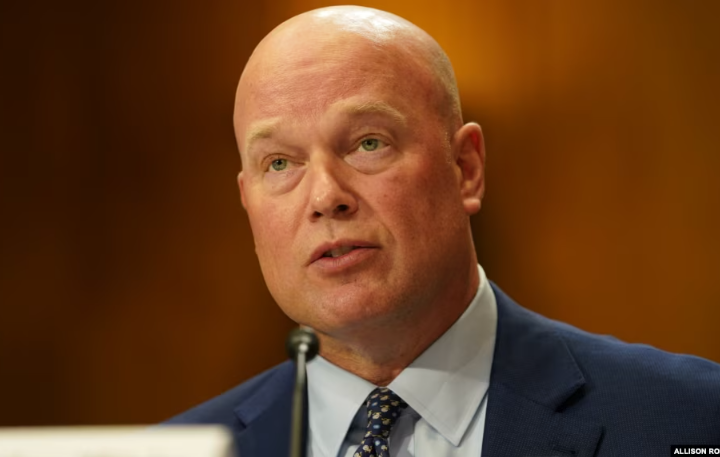 US Ambassador Whitaker Says Trump Has ‘Many’ Cards To Bring Peace To Ukraine
US Ambassador Whitaker Says Trump Has ‘Many’ Cards To Bring Peace To Ukraine 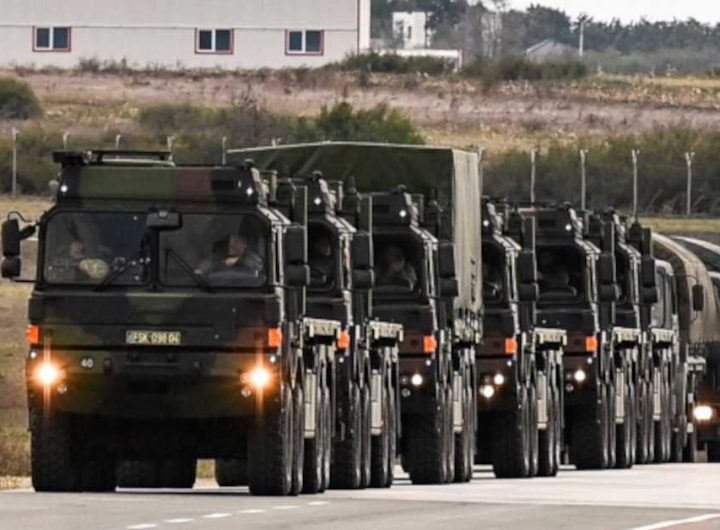 Serbia’s Narrative Against Kosovo and Turkey Over Turkish Drones
Serbia’s Narrative Against Kosovo and Turkey Over Turkish Drones 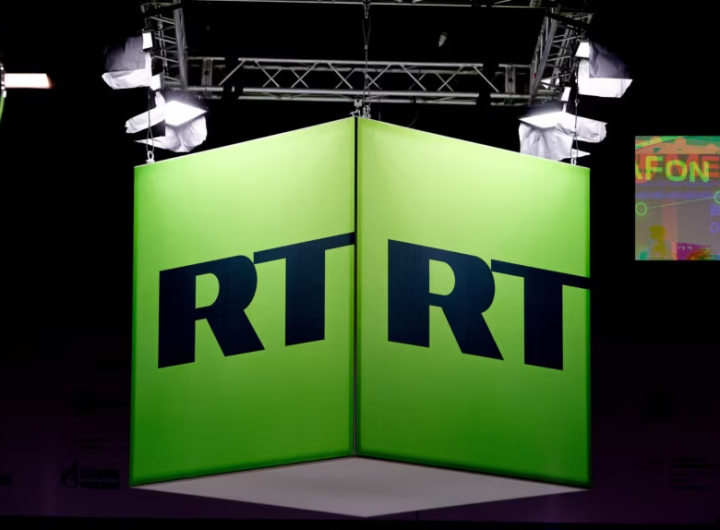 Russian Propaganda Ahead of Elections and Influence on Serbs in Kosovo
Russian Propaganda Ahead of Elections and Influence on Serbs in Kosovo 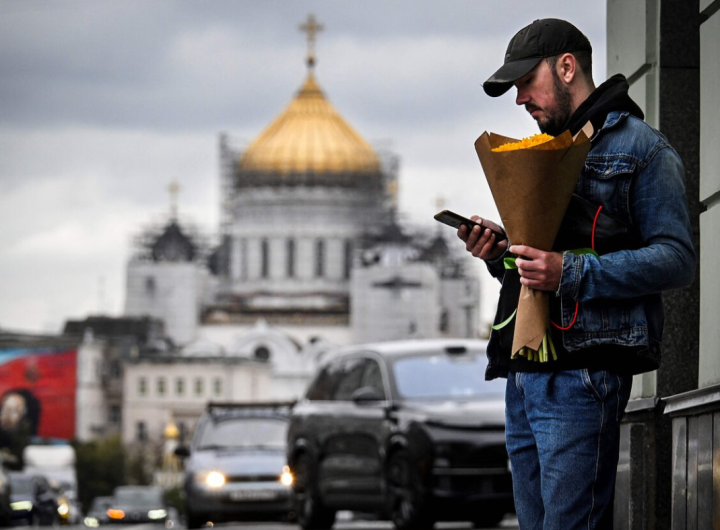 Russia blocks mobile data and text messages for European roaming customers
Russia blocks mobile data and text messages for European roaming customers 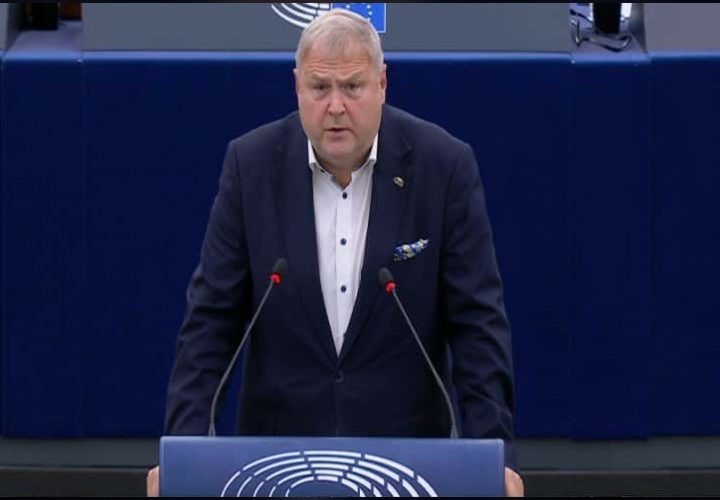 Terras: Serbia’s interference in Kosovo’s local elections unacceptable
Terras: Serbia’s interference in Kosovo’s local elections unacceptable 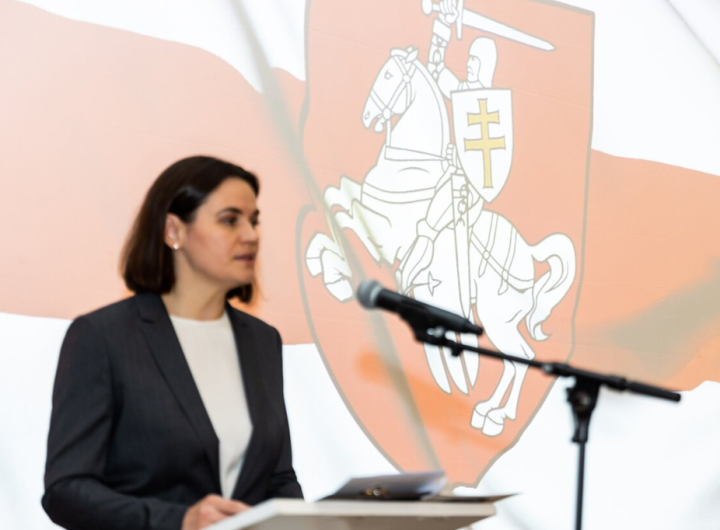 Tsikhanouskaya’s office in Vilnius still operating despite reduced security
Tsikhanouskaya’s office in Vilnius still operating despite reduced security